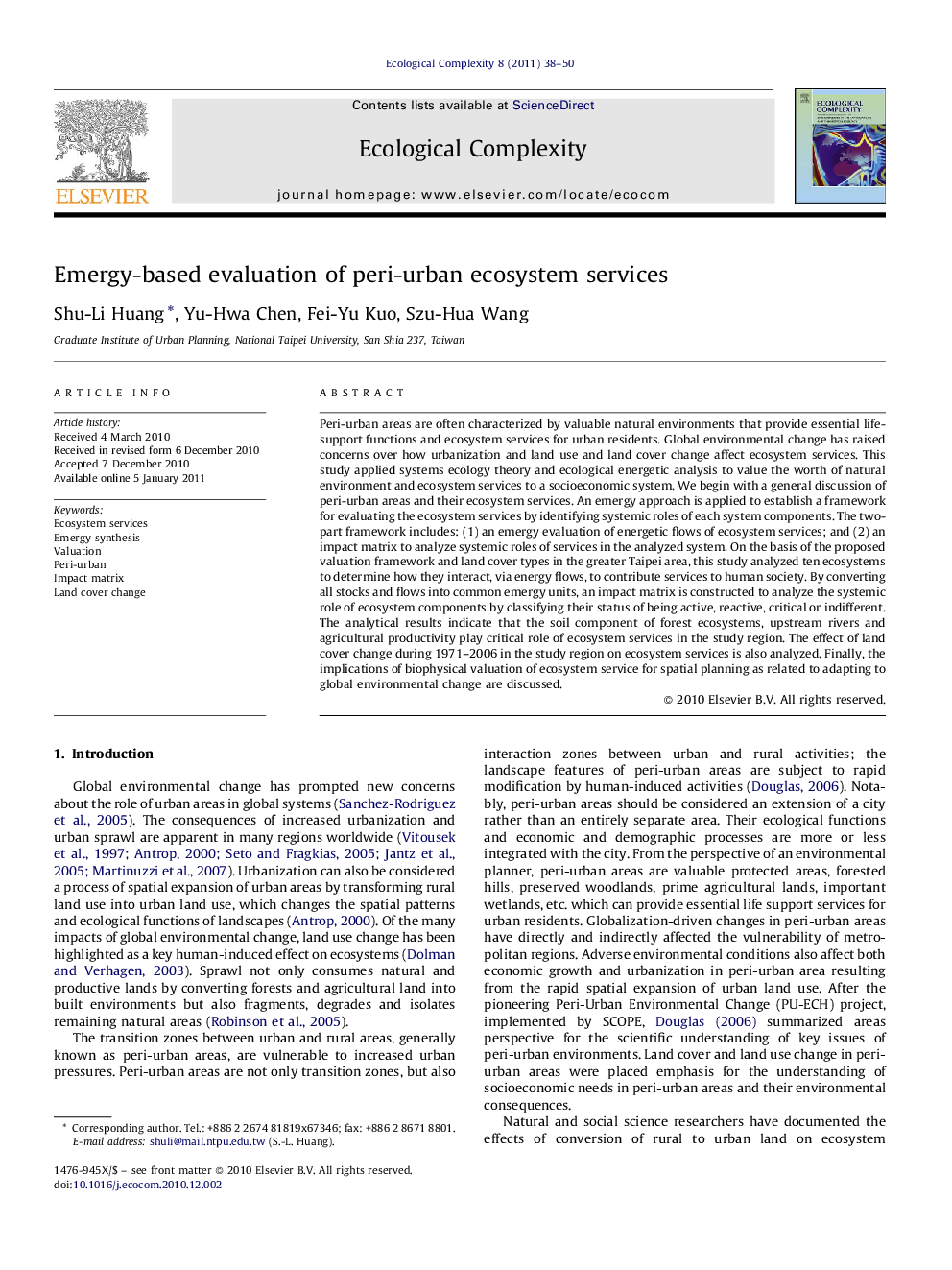| Article ID | Journal | Published Year | Pages | File Type |
|---|---|---|---|---|
| 4372628 | Ecological Complexity | 2011 | 13 Pages |
Peri-urban areas are often characterized by valuable natural environments that provide essential life-support functions and ecosystem services for urban residents. Global environmental change has raised concerns over how urbanization and land use and land cover change affect ecosystem services. This study applied systems ecology theory and ecological energetic analysis to value the worth of natural environment and ecosystem services to a socioeconomic system. We begin with a general discussion of peri-urban areas and their ecosystem services. An emergy approach is applied to establish a framework for evaluating the ecosystem services by identifying systemic roles of each system components. The two-part framework includes: (1) an emergy evaluation of energetic flows of ecosystem services; and (2) an impact matrix to analyze systemic roles of services in the analyzed system. On the basis of the proposed valuation framework and land cover types in the greater Taipei area, this study analyzed ten ecosystems to determine how they interact, via energy flows, to contribute services to human society. By converting all stocks and flows into common emergy units, an impact matrix is constructed to analyze the systemic role of ecosystem components by classifying their status of being active, reactive, critical or indifferent. The analytical results indicate that the soil component of forest ecosystems, upstream rivers and agricultural productivity play critical role of ecosystem services in the study region. The effect of land cover change during 1971–2006 in the study region on ecosystem services is also analyzed. Finally, the implications of biophysical valuation of ecosystem service for spatial planning as related to adapting to global environmental change are discussed.
